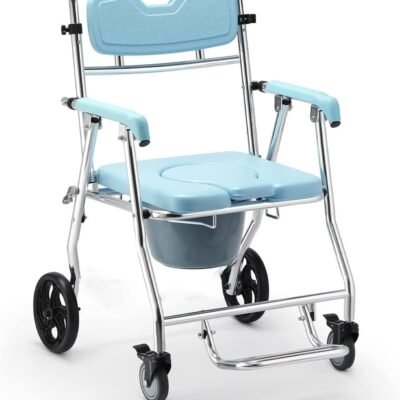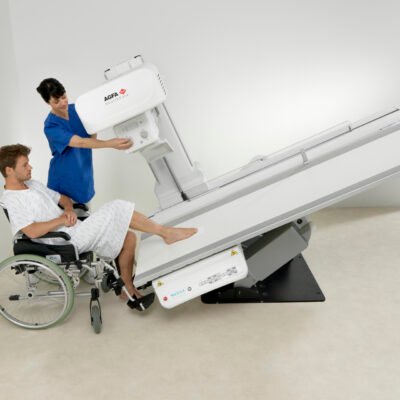Liver transplantation is a crucial life-saving procedure performed when the liver loses its functionality. If you have been diagnosed with chronic liver disease or are experiencing liver failure, your surgeon may recommend a liver transplant.
Over the years, the number of liver transplants in India has significantly increased, and technology has played a pivotal role in enhancing the success rate and safety of these procedures.
In this article, we will unveil the role of technology in modern-day liver transplantation. While you scroll further, you will also gain informative insights from the best hospital for liver transplant in India. Please stick to the end of the article to know more about it. Let’s begin!
● Organ Preservation Technology
Organ preservation technology plays an immensely crucial role in liver transplantation, as it involves the preservation of the donor’s liver before transplantation. It’s worth noting that the liver can survive outside the body for a limited time period. Organ preservation technology helps maintain the liver in a viable state until it’s transplanted into a recipient. Cold storage is one of the most commonly used techniques for organ preservation, where the donor’s liver is cooled to 4°C and stored in a specialised solution to preserve the organ’s integrity.
However, in recent years, machine perfusion has emerged as a more advanced organ preservation technique. This involves pumping a nutrient-rich solution through the donor liver, which helps maintain the liver in a more physiologic state. This incredible technique has shown promising results in improving graft survival rates and reducing the incidence of complications after liver transplantation.
● Surgical Navigation Technology
Surgical navigation technology represents another major advancement. This technology enables surgeons to visualise the liver and its surrounding blood vessels in real-time during surgery, enhancing both the safety and accuracy of the surgical procedure.
Leading hospitals in India are leveraging surgical navigation technology to perform liver transplant surgeries. With this technology, surgeons can seamlessly create a 3D map of the liver and surrounding blood vessels before surgery, enabling them to plan the procedure more effectively and reducing the risk of complications.
● Intraoperative Imaging Technology
This unique advancement in liver transplantation enables surgeons to visualise the liver and surrounding structures in real-time during surgery. It helps identify all potential complications, ensuring that the surgical procedure is performed accurately.
The leading hospitals in India are using intraoperative imaging technology best to perform liver transplant surgeries. Surgeons can not just visualise the liver but also the neighbouring structures. It reduces the risk of complications and improves the overall success rate of the surgery.
● Robotic Surgery Technology
This advanced liver transplantation option enables surgeons to perform liver transplant surgeries using robotic arms. This can efficiently provide greater precision and control during surgery.
India’s leading hospitals are making the best use of robotic surgery technology to perform liver transplant surgeries. Besides, it helps reduce the risk of complications and improve patient outcomes.
● Telemedicine Technology
Telemedicine technology is a crucial advance in liver transplantation that enables healthcare professionals to communicate remotely with patients and other healthcare providers. A liver transplant is a complicated surgical process, therefore, the patient requires continuous monitoring. Through this technology, doctors can be in touch with the patient easily and provide them with the necessary advice.
Leading hospitals in India are utilising telemedicine technology to provide remote care to liver transplant patients. This technology allows healthcare professionals to monitor patients and provide the necessary care and support. Importantly, innovative technology can help reduce the risk of complications post-surgery, ensuring optimal patient outcomes.
To Conclude
Technology has played an immensely crucial role in modern liver transplantation in India. Cutting-edge organ preservation technology is used to improve liver transplant surgeries’ success rate and safety.
As technology continues to advance with each passing day, the outcomes of liver transplant surgeries are likely to improve. Therefore, it provides hope to patients suffering from end-stage liver disease.
On the other hand, as technology is a critical component of liver transplantation, it must maintain the expertise and experience of the surgical team. Successful liver transplantation demands a multidisciplinary team of healthcare professionals. It should include hepatologists, transplant surgeons, critical care specialists, anaesthesiologists, etc., who work hand-in-hand.
Additionally, liver transplantation is a complex and expensive procedure. In fact, there is also a considerable shortage of organ donors in India. To address this, the best hospital for liver transplants in India has organised organ donation and transplantation awareness campaigns nationwide.
Read more health blogs about:
All you need to know about liver transplantation





